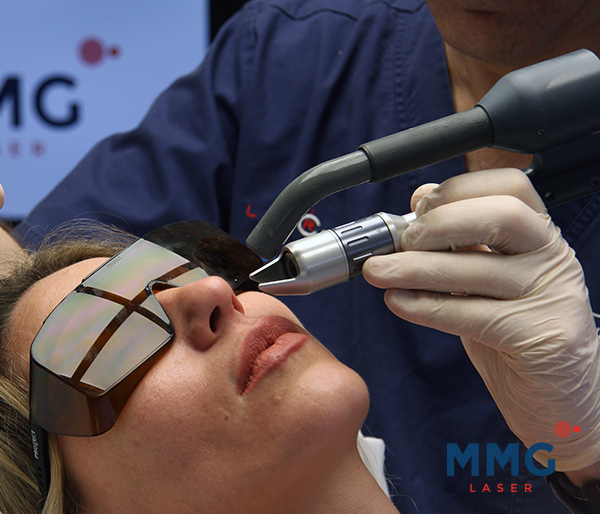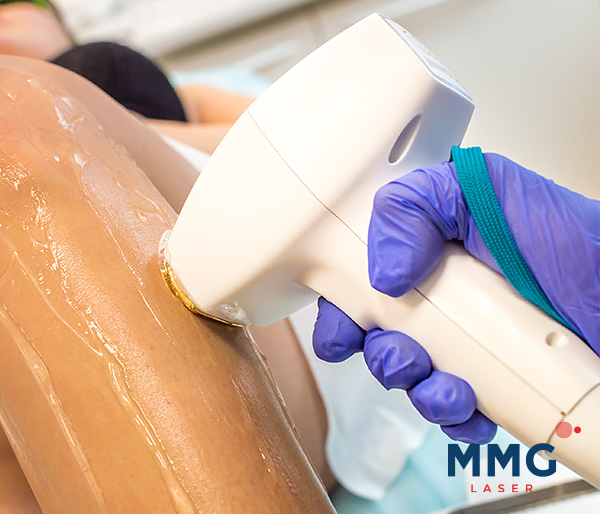Laser Treatments: Tattoo Removal and More
The medical laser is an advanced technology that has revolutionised the aesthetic medicine and plastic surgery industry. It offers a wide range of applications, from tattoo removal to the treatment of various dermatological conditions. In this guide, we will explore the different types of medical lasers and their uses, what you can expect as a result of these treatments, approximate prices and possible complications.
Types of Medical Lasers and their Uses
Medical lasers are versatile tools used to treat a variety of skin conditions and perform aesthetic procedures. The most common types and their applications: The Q-Switched Laser: Used for the removal of tattoos and pigmented lesions. The Q-switched laser is used for tattoo removal and skin rejuvenation. Fractional CO2 laser is used for facial rejuvenation, scar removal. Diode Laser is used for permanent hair removal and treatment of vascular lesions. Erbium YAG laser is used for facial rejuvenation and wrinkle removal.
What to expect as a result?
The response to medical laser treatment varies depending on the type of laser and the condition being treated. However, in general, you can expect significant improvements in the appearance of your skin. For example, in the case of tattoo removal, the laser breaks up the ink particles, which over time allows the body to remove them naturally. In facial rejuvenation, the laser stimulates collagen production, leading to firmer, more youthful skin.
Price of Laser Treatments
The cost of laser treatments varies depending on several factors, including the type of laser, the size of the area to be treated and the location of the clinic. In general, tattoo removal treatments can range from €100 to €500 per session, while facial rejuvenation procedures can have a similar price range. It is important to consult with a professional to get an accurate quote.
Possible Complications
While medical laser treatments are mostly safe and effective, it is essential to understand the potential complications. These can include temporary redness, swelling, changes in skin pigmentation and, in rare cases, scarring or infection. However, most people experience a smooth recovery and positive results.
Preventing Possible Complications in Laser Treatments
Preventing complications with laser treatments is essential to ensure safe and effective results. Here are some guidelines and tips to minimise the risks associated with these procedures:
- Consult a Qualified Professional: The first and most important recommendation is to find a healthcare professional or dermatologist with experience in laser treatments. Make sure they are certified and have a track record of success with similar procedures.
- Assess your Eligibility: Not all skin types and conditions are suitable for laser treatments. It is important that the practitioner assesses your skin and informs you about the suitability of the procedure in your case.
- Follow Preoperative Instructions: If you are given specific instructions before treatment, such as avoiding sun exposure or discontinuing the use of certain skin care products, be sure to follow them rigorously. This will help prepare your skin properly.
- Sun protection: After treatment, protect your skin from direct sun exposure for the time recommended by your practitioner. The sun can increase the risk of complications such as hyperpigmentation.
- Avoid self-treatment: Do not attempt to perform laser treatments at home with unprofessional devices. Results can be unpredictable and increase the risk of injury.
- Open Communication: Inform your practitioner of any medical conditions, allergies or medications you are taking. This will help tailor treatment to your specific needs and prevent adverse reactions.
- Postoperative Follow-up: Follow all postoperative instructions provided by your practitioner. This may include using topical creams, keeping your skin clean, and avoiding certain physical activities for a specific period of time.
- Complications Awareness: Familiarise yourself with the possible complications and side effects associated with laser treatment. This will help you recognise any problems early and seek medical attention if necessary.
- Communication with your practitioner: If you experience any unexpected or worrisome side effects after treatment, contact your practitioner immediately. Do not ignore any symptoms, even if they seem mild.
- Schedule Additional Sessions as Recommended: If multiple treatment sessions are suggested, be sure to follow the recommended schedule. Skipping sessions or stopping treatment prematurely can affect results.
Preventing complications in laser treatments is a crucial part of the process. By choosing an experienced practitioner, following pre- and post-operative recommendations, and watching for any signs of problems, you can help ensure a successful and safe procedure. Always seek the guidance of a trusted professional for your specific laser treatment needs.
Medical laser treatments offer a wide range of solutions for skin problems and cosmetic procedures. If you are considering laser treatment, we recommend that you speak to a professional at a specialised clinic. They will be happy to assess your needs and provide you with detailed information about the process, costs and expected results.
Remember that tattoo removal is just one of the many applications of medical laser treatments. Whether you are looking to rejuvenate your skin, remove a pigmented lesion, or address any other dermatological concern, laser technology can be your ally on the road to healthier, more beautiful skin.
Laser Treatments
The dermatological laser is an effective weapon in the therapy of some specific skin diseases. In its simplest form, it is a light source, where the radiant energy is in the form of photons and waves capable of producing special biological effects…
| Anesthesia | Cream or local anesthetic |
| Duration | 10 - 30 min. |
Laser Hair Removal
Among our wide range of state-of-the-art lasers, we have the most advanced medical hair removal for all skin types, including tanned skin…
| Anesthesia | Cold application |
| Duration | Depends on the area |

